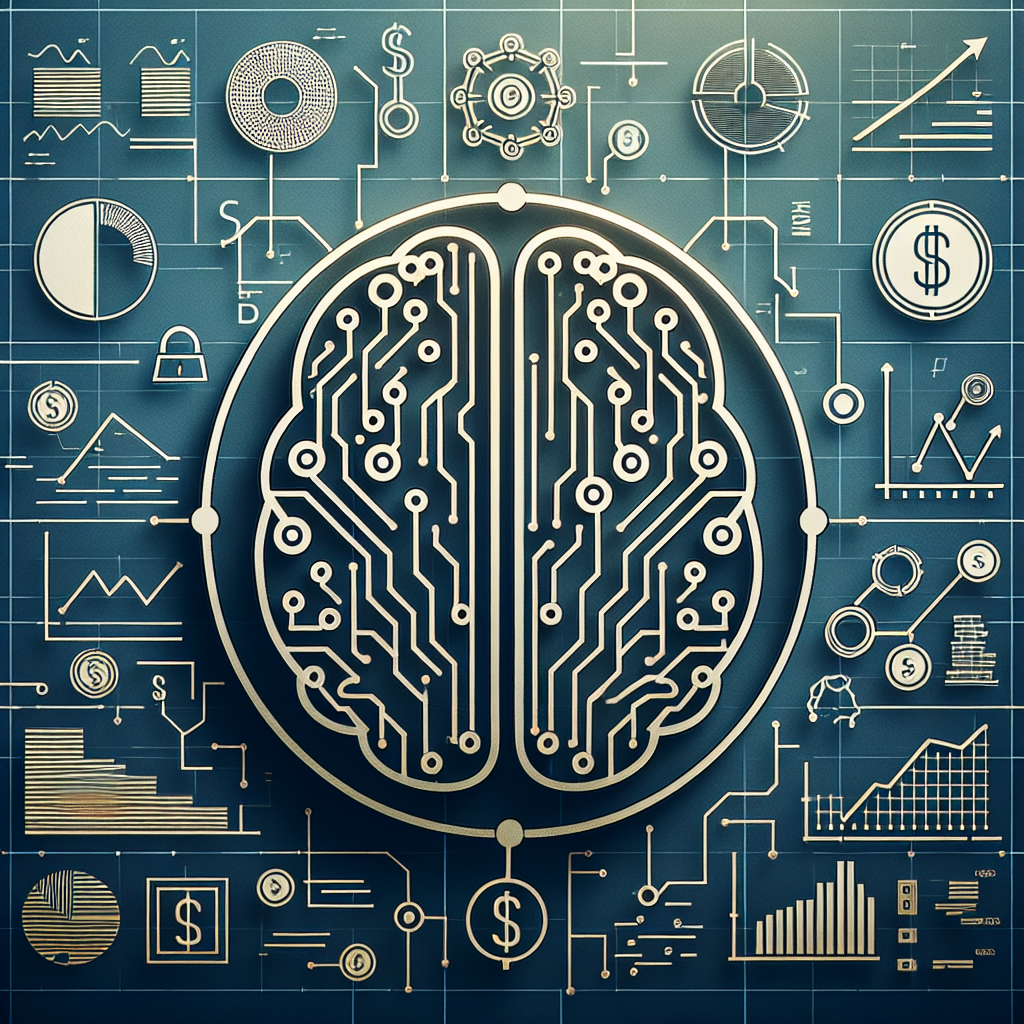Artificial Intelligence (AI) has been making significant strides in various industries, including finance. AI software is being used to streamline processes, increase efficiency, and improve decision-making in the financial sector. From algorithmic trading to fraud detection, AI is revolutionizing the way financial institutions operate. In this article, we will explore some of the key applications of AI software in finance and how it is transforming the industry.
1. Algorithmic Trading: One of the most prominent applications of AI in finance is algorithmic trading. AI-powered algorithms analyze market data in real-time to make trading decisions. These algorithms can execute trades at a much faster pace than human traders, leading to increased efficiency and profitability. AI can also identify trading patterns and trends that may not be apparent to human traders, leading to better investment decisions.
2. Risk Management: AI software is also being used to improve risk management in the financial industry. AI algorithms can analyze vast amounts of data to identify potential risks and predict market trends. This helps financial institutions to make more informed decisions and mitigate risks before they escalate. AI can also help in fraud detection by identifying suspicious patterns in transactions and flagging them for further investigation.
3. Customer Service: AI-powered chatbots are increasingly being used in the finance industry to improve customer service. These chatbots can provide instant responses to customer queries, handle routine transactions, and even provide personalized financial advice. This not only improves the customer experience but also reduces the workload on human customer service representatives.
4. Personalized Financial Advice: AI software can analyze a customer’s financial data and provide personalized investment advice tailored to their specific needs and goals. This helps customers make better financial decisions and optimize their investment portfolios. AI can also provide insights into potential risks and opportunities, helping customers to navigate the complex world of finance more effectively.
5. Credit Scoring: AI algorithms are also being used to improve credit scoring in the finance industry. Traditional credit scoring models rely on limited data points, leading to inaccurate assessments of creditworthiness. AI algorithms, on the other hand, can analyze a wide range of data points to provide a more accurate and comprehensive credit score. This helps financial institutions to make better lending decisions and reduce the risk of default.
6. Compliance and Regulatory Reporting: The finance industry is heavily regulated, and compliance with regulatory requirements is a significant challenge for financial institutions. AI software can help automate compliance processes and ensure that institutions are meeting regulatory requirements. AI algorithms can analyze vast amounts of data to identify potential compliance issues and flag them for further investigation. This helps financial institutions to avoid costly penalties and maintain regulatory compliance.
7. Fraud Detection: Fraud is a significant challenge for the finance industry, costing billions of dollars each year. AI software is being used to improve fraud detection by analyzing transaction data in real-time and identifying suspicious patterns. AI algorithms can detect fraudulent activities much faster than human analysts, leading to quicker action to prevent further losses. This helps financial institutions to protect their customers and maintain the integrity of their operations.
In conclusion, AI software is transforming the finance industry by improving efficiency, decision-making, and customer service. From algorithmic trading to risk management, AI is revolutionizing the way financial institutions operate. As AI technology continues to evolve, we can expect to see even more applications of AI in finance in the future.
FAQs:
Q: Can AI replace human traders in the finance industry?
A: While AI-powered algorithms can execute trades at a much faster pace than human traders, they are not likely to replace human traders entirely. Human traders bring a level of intuition and creativity to trading that AI algorithms cannot replicate. However, AI can complement human traders by providing data-driven insights and improving decision-making.
Q: How secure is AI software in the finance industry?
A: Security is a significant concern in the finance industry, and AI software is no exception. Financial institutions must ensure that their AI algorithms are secure and protected from cyber threats. It is essential to implement robust security measures, such as encryption and access controls, to protect sensitive financial data.
Q: How can financial institutions ensure the ethical use of AI in finance?
A: Ethical considerations are crucial when implementing AI in the finance industry. Financial institutions must ensure that their AI algorithms are transparent, fair, and unbiased. It is essential to regularly audit AI algorithms to identify and address any potential biases or ethical concerns. Additionally, financial institutions should establish clear guidelines for the use of AI and ensure that they comply with regulatory requirements.
In conclusion, AI software has tremendous potential to transform the finance industry by improving efficiency, decision-making, and customer service. By leveraging AI technology, financial institutions can stay ahead of the competition and meet the evolving needs of their customers. As AI continues to evolve, we can expect to see even more innovative applications of AI in finance in the years to come.

